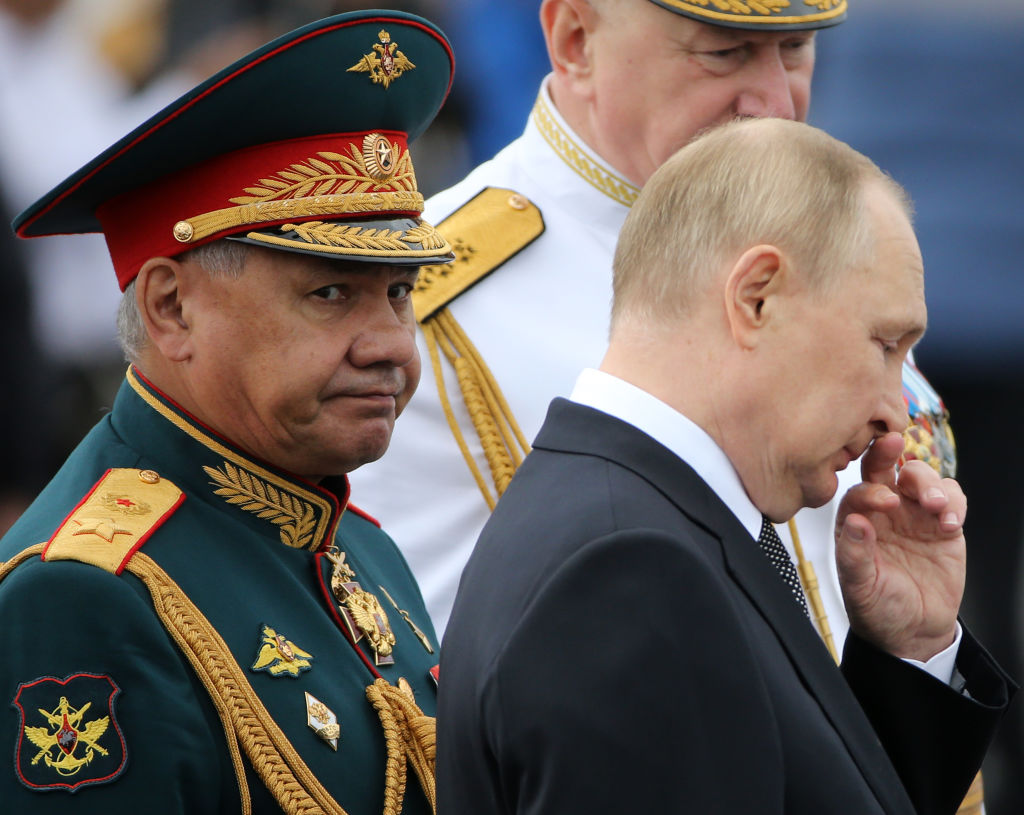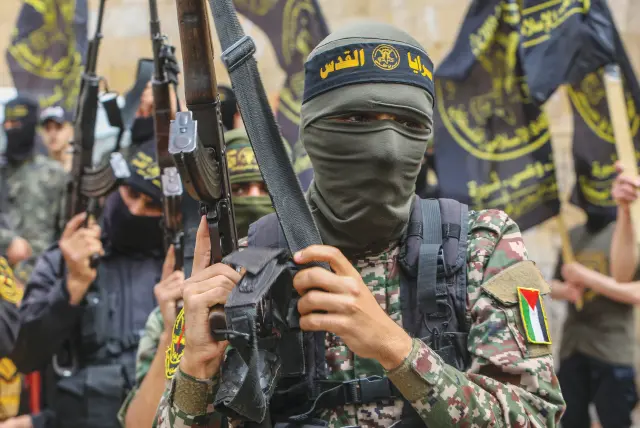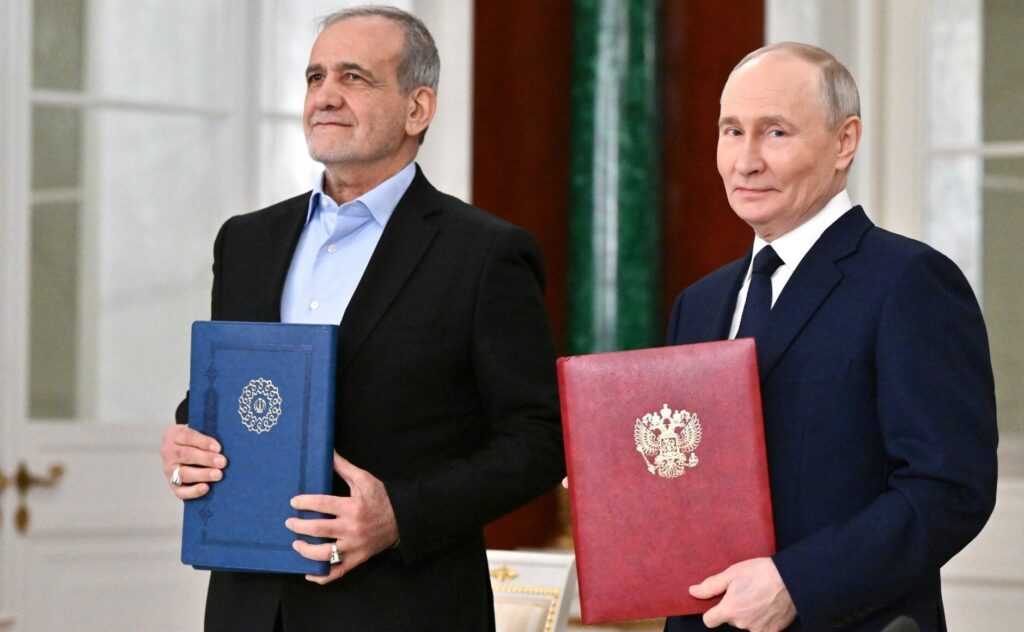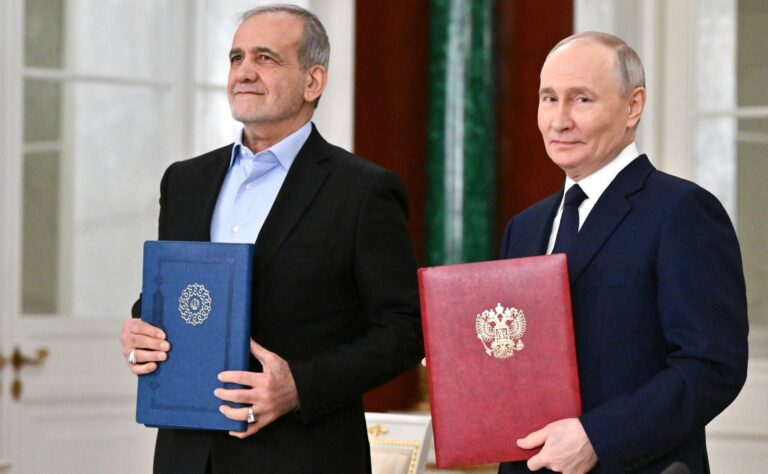Executive Summary
Despite years of strategic alignment, Russia did not provide direct military or political support to Iran during its recent confrontation with Israel. This reflects a calculated restraint rooted in Russia’s own geopolitical balancing act, especially in the Middle East. The decision may reshape the future of Moscow–Tehran ties, revealing limitations in their partnership and exposing potential fractures with long-term implications for Syria, the South Caucasus, and the wider region.
- Russia and Iran share:
- Hostility toward U.S. hegemony,
- Interest in preserving the Assad regime in Syria,
- Defense-technical cooperation (e.g., Iranian drones for Russia’s war in Ukraine).
- However, the partnership remains transactional:
- No formal alliance,
- Each side maintains independent strategic ambitions, especially in Syria, Iraq, and the Persian Gulf.
the key Russian–Iranian defense arrangements:
1. Comprehensive Strategic Partnership Treaty (17 Jan 2025)
- 20‑year framework: Covers military cooperation, intelligence sharing, cybersecurity, combined exercises, air-defense tech, port calls, personnel training, nuclear-energy collaboration, etc.
- No mutual defense clause: Russia isn’t obliged to defend Iran (and vice versa) if attacked.
2. Military‑Technical Cooperation
- Drone production: Iran’s Shahed drones (e.g., Geran‑2/3) are being co‑produced in Russia’s Alabuga zone, supplying Moscow’s Ukraine war effort.
- Advanced weaponry & air‑defense: The treaty opens doors for transfers of S‑300/S‑400, fighter jets (Su‑30/35), Tor‑M1, and possibly ballistic missiles .
3. Joint Military Activities
- Combined exercises & personnel exchange: Joint naval drills in the Gulf of Oman, combined ground and cyber exercises, plus educational exchanges & defense-sector seminars.
- Port visits & logistical cooperation: Greater access for Russian ships, joint maritime security, counter-terrorism, search-and-rescue ops.
4. Intelligence & Cyber Warfare
- Intel‑sharing expansion: Structured cooperation between security agencies via working groups.
- Cyber collaboration: Russia aids Iran’s surveillance and cyber-offensive capabilities, with possible AI/cybersecurity synergy .
5. Historical Arms Transfers
- Legacy systems: Since the early 1990s, Russia has supplied Iran with MiG‑29s, Su‑24, Mi‑17, S‑200, Tor‑M1, and more.
🧭 Summary
- Strategic depth: The 2025 treaty locks in two decades of defense-tech coordination—but stops short of a NATO-style alliance.
- Active cooperation: Includes drone co-production, joint military drills, personnel training, intelligence/cyber sharing.
- No formal defense guarantee: Russia retains the option not to intervene militarily if Iran is attacked—or vice versa.
2. Why Russia Did Not Support Iran Militarily Against Israel
- Russia seeks to preserve relations with Israel, which:
- Coordinates with Russia in Syria to avoid direct military clashes.
- Hosts a large Russian-speaking population.
- Offers technological and intelligence assets Russia does not want to lose access to.
- Supporting Iran militarily would have risked:
- Triggering direct conflict with Israel,
- Undermining Russia’s mediator image in the Middle East,
- Disrupting the careful status quo in Syria.
B. Fear of Escalation and Overextension
- Russia is already militarily overstretched in Ukraine.
- It cannot afford a second front or major entanglement with the U.S. and Israel in the Middle East.
💰 C. Economic Interests with the Gulf
- Moscow is actively building relations with Saudi Arabia, the UAE, and Qatar.
- Siding openly with Iran would alienate these oil-rich partners.
- Russia also wants to avoid disrupting the OPEC+ framework.
D. Diverging Syria Strategies
- Iran aims to entrench itself militarily in Syria, while Russia prefers regime stability without escalating tensions with Israel.
- Russia’s air defense systems in Syria have deliberately avoided intercepting Israeli strikes on Iranian-linked targets.
3. Iranian Reactions and Interpretations
- Tehran is publicly cautious but internally disappointed.
- Iranian hardliners see Russia as an opportunistic actor, not a dependable ally.
- May accelerate Iran’s shift toward:
- Greater self-reliance,
- Stronger alignment with China, which it sees as less ideologically compromised,
- Potential retaliation without consulting Moscow — increasing the risk of miscalculations in Syria or Lebanon.
4. Consequences for the Russia–Iran Relationship
⛓️ A. Strategic Distrust
- Moscow’s neutrality exposes the fragility of the axis.
- Iran may scale back cooperation in Syria, where it could pursue independent military moves.
- Russia’s long-term arms deals with Iran (e.g., Su-35 fighter jets) may stall.
B. Reduced Iranian Support for Russia in Ukraine
- Iran might slow the delivery of new drones or missiles.
- It may also test the limits of its Russia alignment by hedging toward China or even flirting with diplomatic gestures to the West.
C. Erosion of the “Axis of the Sanctioned”
- Russia and Iran built cooperation under Western sanctions — but diverging strategic priorities may fracture that bond.
- This undermines multipolar narratives both countries use to legitimize their foreign policies.
5. Wider Regional Implications
In Syria
- Russia’s hands-off approach may embolden Israel to continue airstrikes on Iranian positions.
- Iran might deepen cooperation with local militias and expand its missile entrenchment — potentially provoking wider conflict.
In the South Caucasus
- Iran may reduce quiet tolerance for Russian policies in Armenia–Azerbaijan relations.
- Moscow could lose leverage if Tehran starts supporting alternative regional formats (like closer ties with China’s Belt & Road).
In Global Non-Proliferation
- Iran may use Russia’s neutrality to justify further nuclear development, claiming it cannot count on great-power backing in case of conflict.
Russia’s decision to remain neutral amid Iran–Israel tensions reveals the real boundaries of the Russia–Iran strategic relationship. While aligned on many fronts, both powers ultimately prioritize national interest and regional flexibilityover ideological unity. This decision may mark a slow cooling of the partnership, especially if Iran feels abandoned in future escalations.


More on this story: Hamas assault on Israel suggests external support, planning
Russia can help Iran strike U.S. military targets indirectly but effectively, using tools that fit the playbook of hybrid warfare, proxy support, and deniable operations. Here’s a detailed breakdown of how Russia could assist Iran before, during, and after such attacks:
HOW RUSSIA CAN HELP IRAN STRIKE U.S. TARGETS
🔍 I. Intelligence Support
🛰️ 1. Satellite Imagery
- Russia can provide high-resolution satellite data (via Roscosmos or military satellites) on:
- U.S. base layouts in Iraq, Syria, Gulf states
- Troop movement patterns
- Air defense systems and radar positions
- Enables Iran or proxies to plan precision drone or rocket attacks.
2. Signals Intelligence (SIGINT)
- Russian SIGINT bases in Syria (e.g., Latakia, Tartus) may intercept:
- U.S. radio communications
- Drone control frequencies
- Surveillance UAV feeds
- Russia may share this with IRGC-Quds Force or proxy commanders.
This intelligence shortens Iran’s targeting cycles and increases strike accuracy.
II. Technical and Electronic Warfare (EW) Support
3. GPS Spoofing & Jamming
- Russia has deployed EW units (e.g., Krasukha-4, Murmansk-BN) in Syria capable of:
- Disrupting GPS in large areas
- Blocking U.S. drone navigation
- Masking Iranian drone swarms
Iran can launch attacks under Russian electronic “cover,” blinding U.S. detection systems during critical moments.
🛩️ 4. Radar Blackouts & Airspace Deconfliction
- Russia controls key Syrian air corridors.
- When Iran plans a strike (e.g., on al-Tanf or Deir ez-Zor), Russia may:
- Shut down air defense radars temporarily
- Deconflict airspace to ensure Iranian UAVs or rockets are not intercepted
This was suspected during several 2023–2024 strikes by Iraqi PMF militias.
III. Proxy Training & Coordination
5. Shared Use of Proxy Networks
- Russia and Iran both support:
- Hezbollah (Lebanon/Syria)
- PMF factions (Iraq)
- Syrian Arab militias
- Joint training may include:
- Urban warfare
- Drone and IED tactics
- Counter-intel against U.S. surveillance
This fosters a shared battlefield culture that boosts effectiveness of Iranian strikes.
IV. Logistics, Arms Transfers & Tech Assistance
6. Supply Routes for Precision Weapons
- Russia can move dual-use tech or weapons via:
- Syria (Tartus–Damascus)
- Armenia–Iran route
- Caspian Sea shipping
Examples:
- Components for UAVs and loitering munitions
- Electronic guidance kits for rockets (PGMs)
- Thermal imagers and anti-jamming modules
➡️ Russian-supplied components can make Iran’s strikes more survivable and more lethal.
V. Strategic Narrative & Diplomatic Shield
7. Media & UN Support
- After an Iranian proxy strike, Russia can:
- Use RT, Sputnik, and social media bots to blame U.S. “occupation” or Israel
- Veto UNSC resolutions condemning Iranian actions
- Shield Tehran diplomatically through BRICS forums
This creates space for Iran to escalate without paying a full diplomatic price.
Russia does not need to launch the missile or press the button.
Instead, it builds the battlefield:
- Gives Iran the eyes, ears, and shield
- Lets Iran or its proxies pull the trigger
This plausible deniability is central to Russian-Iranian strategic cooperation — and makes retaliation against either state complex and risky.

I. Strategic Logic: Bleeding the U.S. Without Direct War
- Iran’s attacks distract, drain, and degrade U.S. military focus in the region.
- This forces Washington to:
- Spend resources on defense, retaliation, and base hardening
- Divert attention from Russia’s core interests (Ukraine, the Arctic, Africa)
- Reconsider force deployments, weakening deterrence elsewhere
Each Iranian strike costs Russia nothing — but costs the U.S. time, money, and political capital.
II. Revenge by Proxy: Response to U.S. Ukraine Policy
- Russia views U.S. support for Ukraine as an act of hybrid warfare.
- Letting Iran hit American troops and bases in Iraq or Syria is:
- A non-attributable counterpunch
- A way to make the U.S. “pay” for Ukraine without confronting NATO directly
Iran acts as a “deniable sword” in Russia’s global response toolkit.
III. Disrupting U.S. Middle East Architecture
- Russia wants to break the U.S.-led security order in the region.
- Iranian strikes:
- Undermine U.S. credibility with Gulf partners
- Encourage Iraq to ask for U.S. troop withdrawals
- Pressure U.S.-Israel coordination
The more chaos Iran sows, the easier it is for Russia to present itself as a “stabilizing force” or “alternative partner.”
IV. Creating Bargaining Leverage
- Russia can turn cooperation with Iran off or on, depending on U.S. actions.
- This gives Moscow:
- A bargaining chip in Ukraine negotiations
- Leverage over European energy and military diplomacy
- A threat vector it can disown or escalate
Iranian aggression becomes a tool in Russia’s diplomatic arsenal — a switch it didn’t build, but knows how to flip.
V. Testbed for Weapons, Tech, and Coordination
- Iranian drone and missile strikes are a live battlefield lab:
- Russia observes how U.S. systems react
- Learns about Patriot, C-RAM, Iron Dome limitations
- Refines electronic warfare and deception techniques
Russia can use Iran’s attacks to test NATO doctrine without firing a shot itself.
VI. 🤝 Deepening Anti-Western Alliances
- Supporting Iran’s military aggression helps:
- Cement the Russia–Iran strategic axis
- Strengthen BRICS and Shanghai Cooperation Organization (SCO) coordination
- Signal to China, North Korea, and others that the U.S. can be hurt without war
It’s about forging a world where U.S. power has fewer places to operate freely.
The Perfect Asymmetric Ally
Iran’s attacks give Russia:
- Strategic disruption
- Retaliation-by-proxy
- Plausible deniability
- Geopolitical leverage
All without:
- Committing Russian troops
- Triggering direct confrontation
- Paying diplomatic or economic costs
For the Kremlin, an emboldened and aggressive Iran is not a liability — it’s a strategic asset.
Would you like this expanded into a strategic memo for policymakers, or a version for public-facing media or think tank commentary?




